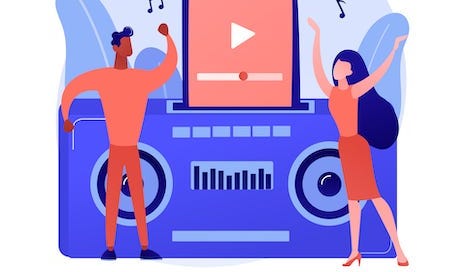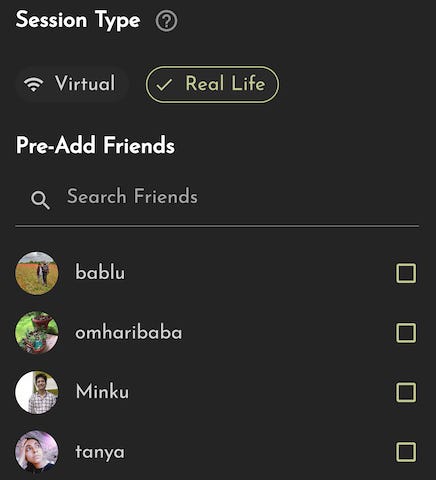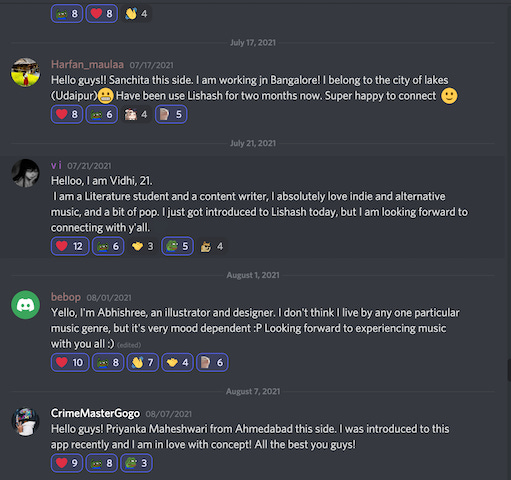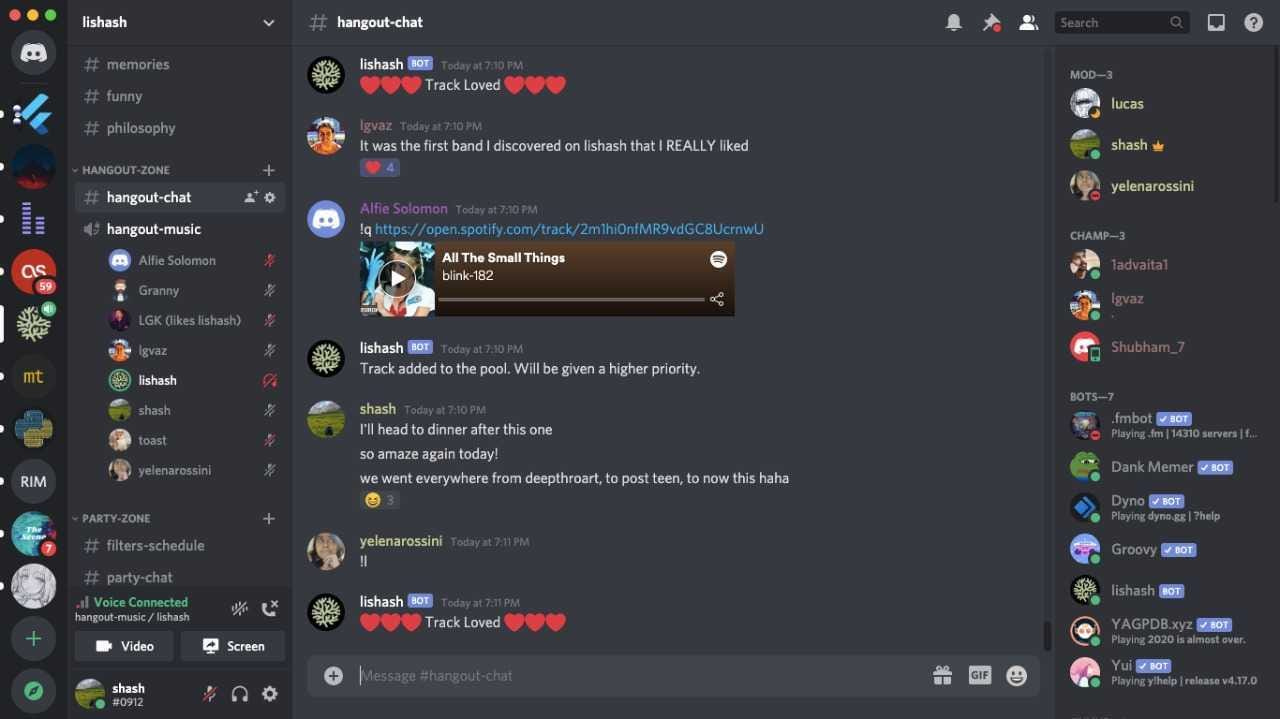Discord & Real Life Group Mode
Experiment 6: First signs of a community, and communal listening virtually and irl.
Timeline
October 2020 — February 2021
But Why?
A closed social network to share music with each other worked really well to form genuine connections between users. However, there was one critical loophole: there was no way to meet new people on the app.
We first experimented with a feature where you could connect two friends to each other within the app. It worked really well for some people, but majority of the users never used it as it was too complicated for them. We needed something much more simple and organic.
Due to the pandemic, several music communities had shifted to Discord, and were regularly hosting listening parties using bots like Groovy.
We wanted to tap into this network but were very wary of the fact that we might end up becoming one more digtial social network without adding any value to people’s real lives. We were looking for a more holistic and balanced solution with presence in both the physical and virtual worlds.
As everyone was only focused on virtual solutions, we felt a great opportunity lied in building an offline solution for social music post-pandemic.
Experiment
We built a real life group mode where the libraries of all active members are imported, and tracks that everyone loves start playing on priority. This solves the choice overload problem when a group of friends are together, and can’t figure what to listen to. Moreover, in spaces where people don’t know each other already this can become a really good icebreaker as you get to see who in your surrounding has the same music taste. This is basically a digital reincarnation of the intimate house concert experiment. We partnered with a few hostels in Goa to run a pilot, and started talking several other hostels across the globe to participate in this.
Simultaneously, to make it easier for users to meet new people we started a Discord server, and built basic infrastructure for them to get to introduce themselves. Moreover, we create a voice channel where our community could listen to music together using the groovy bot.
A big problem with the groovy bot was the requirement to queue. Again choice overload came to haunt us. As we were already experimenting with group mode irl, we decided to port that functionality into a discord bot as well. Users could listen to common tracks, filter music based on genres and speechiness and recreate almost all the solo listening functionality in a social setting on Discord.
Observations
The second wave hit right when we were about to launch our first offline partnership with a hostel in Goa, all tourism was shut down. Covid really does not want us to go out in the real world 😝
Our server really loved the bot we created; the filtering functionality especially was a big hit. People started spending hours listening to music together. They hosted parties for festivals like Christmas. It became a really wholesome experience. We saw first instances of people calling Lishash their second home; early signs of a community. A lot of them also started asking to integrate the synced music listening within the app itself.
Discord was really confusing for users, and they also used to complain about the audio quality frequently. Moreover, the social structure there made it very hard to keep conversations going with the people you met in listening sessions. The only organic way to stay in touch is synchronously; it’s very difficult to interact async if you have just met. There are no icebreakers.
Although the bot did well, we knew we could not scale it. Discord bots use Youtube cracks to stream music, and violate their terms of use. Groovy and Rhythm were in fact shut down this year.
Conclusion
Just stay away from offline solutions until covid restrictions and risks are present.
A holistic social network needs to support both synchronous and asynchronous communication between users.
There needs to be one common interest (music in our case) among all users to make the interactions very organic, and serve as an icebreaker.
We finally made Lishash a place where people could listen to music together.
Discord helped us build our first community of India Indie music lovers that we could now invite to our app to hot start the social network.







